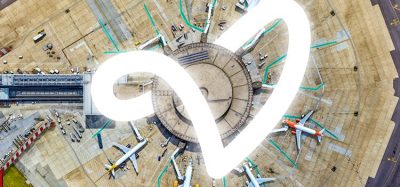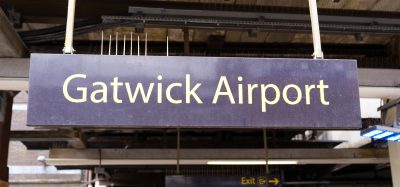Private aviation, what’s in it for regional airports?
- Like
- Digg
- Del
- Tumblr
- VKontakte
- Buffer
- Love This
- Odnoklassniki
- Meneame
- Blogger
- Amazon
- Yahoo Mail
- Gmail
- AOL
- Newsvine
- HackerNews
- Evernote
- MySpace
- Mail.ru
- Viadeo
- Line
- Comments
- Yummly
- SMS
- Viber
- Telegram
- Subscribe
- Skype
- Facebook Messenger
- Kakao
- LiveJournal
- Yammer
- Edgar
- Fintel
- Mix
- Instapaper
- Copy Link
Posted: 8 December 2024 | David Gitman | No comments yet
President of Monarch Air Group, David Gitman, explains why regional private jet hubs play a crucial element in creating jobs, transportation – where there is no other option available – and the economy, while also connecting communities and giving support to humanitarian missions.


Private aviation uses general aviation for business purposes and operates flights that are neither for commercial nor military purposes. These flights are essential for thousands of people and businesses in the U.S., who rely on business aviation for its speed, flexibility and efficiency. More importantly, this sector plays an important role for smaller regional airports, impacting job creation and the local economy.
Regional airports are an essential factor in the private aviation equation in creating their own communities, whether through resident companies, staff, local residents and within the business aviation community. They ensure that the airport ecosystem continues to develop and evolve and is strategically focused on development that benefits the whole community.
The private aviation world supports 1.1 million jobs with not just pilots, flight attendants, mechanics, dispatchers and schedulers but also includes those who work at the 5,000 public use airports in the United States. Indeed, 97% of these FBOs and their related services are small to mid-size businesses or non-profit organisations. They contribute to the economy by generating employment, especially in specialised fields within aviation.
As well as this, regional airports support the future workforce by investing in education and training and introducing young people to careers in aviation. Career days and hands-on work experience turn into internships and future colleagues. The private aviation industry helps to generate $219 billion in economic activity every year. Aircraft manufacturers provide thousands of jobs across the U.S. too.
The industry is very diverse and covers every state, including small towns and rural areas. It is a lifeline for areas with little or no transportation options and a vital service in times of need such as firefighting, search and rescue and medical evacuation.
Eighty per cent of all private aviation flights in the U.S. are to small towns and rural communities. Regional airports are key to ensuring that critical services, which are also time critical, take place in the most efficient and safe manner.
The business case for smaller regional airports
Airlines can only reach around 500 airports, whereas private aviation reaches 5,000 airports and is most definitely needed. More than 42% of business aircraft have flown to towns where there is no airline service. Worryingly, 100 cities in 2023 saw a decline in airline services. Thirty communities lost airline services completely. Just one jet can bring in $2.5 million in economic benefits to a community, therefore regional airports working in conjunction with private aviation can directly affect the local economy.
Missions can be completed by helicopter, turboprop or business jet, it is never a case of one-size-fits-all and its flexible nature makes things happen, where it is needed. Airlines also have restrictions on what they can carry onboard, whereas there are fewer limitations within business/private aviation.
A mission could mean anything from international travel for executives or carrying essential supplies to remote areas to creating transport by helicopter in busy cities and medivac missions.
Regional airports support these missions on a daily basis and offer more convenience than major airports and have fast turnaround times.
Large corporations often have their own business jet and 62% of these have at least one aircraft. In fact, 55% of companies who use business aviation have over 500 employees. The benefits for these businesses are increased productivity during flights, accelerated transactions and time-saving, better customer service and protection of property.
Travel time is minimised using regional airports, where all the usual travel processes are streamlined and efficient. The safety and security of key personnel is enhanced and discretion at these small airports is guaranteed.
Executives often need to travel to multiple destinations in one day, which would be impossible with other methods of transport. Accessing regional airports by business jet makes travel so much easier and faster.
Beyond luxury
Humanitarian support is a crucial mission in private aviation and includes disaster relief, making sure that food and supplies can be brought in, in times of need. The transportation of organs, blood and serum are critical to saving lives. Another form of support is through transporting the volunteer services for the National Guard, Red Cross and U.S. military.
Over 15,000 of these flights take place every year and 38% of pilots have flown a humanitarian mission in the last year. Once again, regional airports play an important role in such missions due to their efficiency and time saving processes and being a closer alternative to a major airport.
Regional airports work hand-in-hand with private and business aviation and both are extremely important especially in terms of critical missions, remote areas and local economy. One could argue that they are very much part of the community and are certainly seen as so, where their critical functions are seen as well as providing employment.
They also offer a chance to strengthen community ties, collaborate with local businesses and are integral to the community. As private aviation continues to grow, regional airports continue to offer important services which generate value to the community and this, in turn, benefits everyone in the community.


Related topics
Air freight and cargo, Economy, Operational efficiency, Regulation and Legislation, Workforce


















